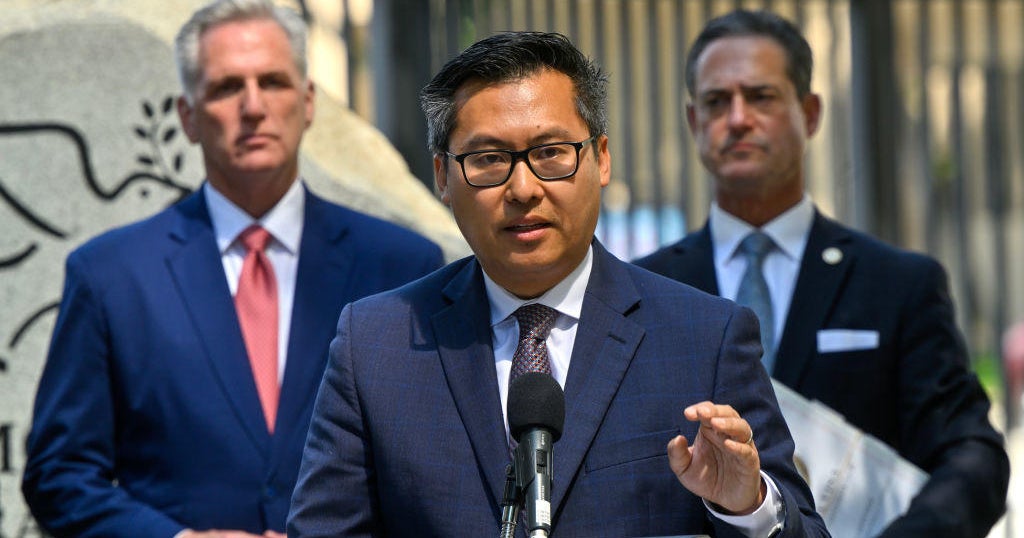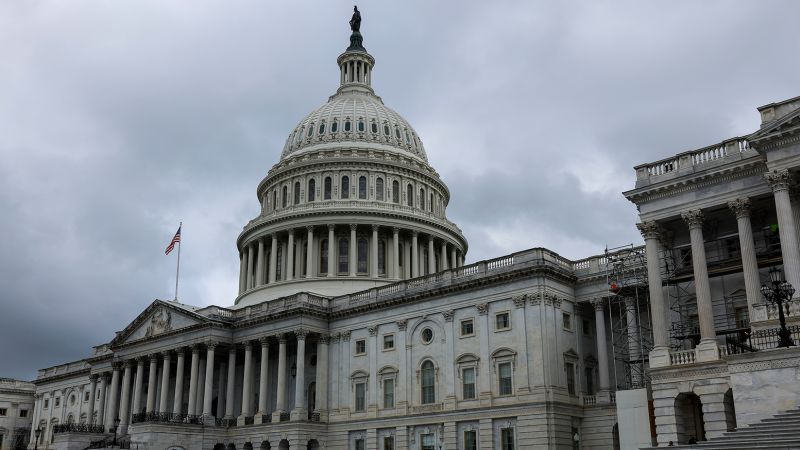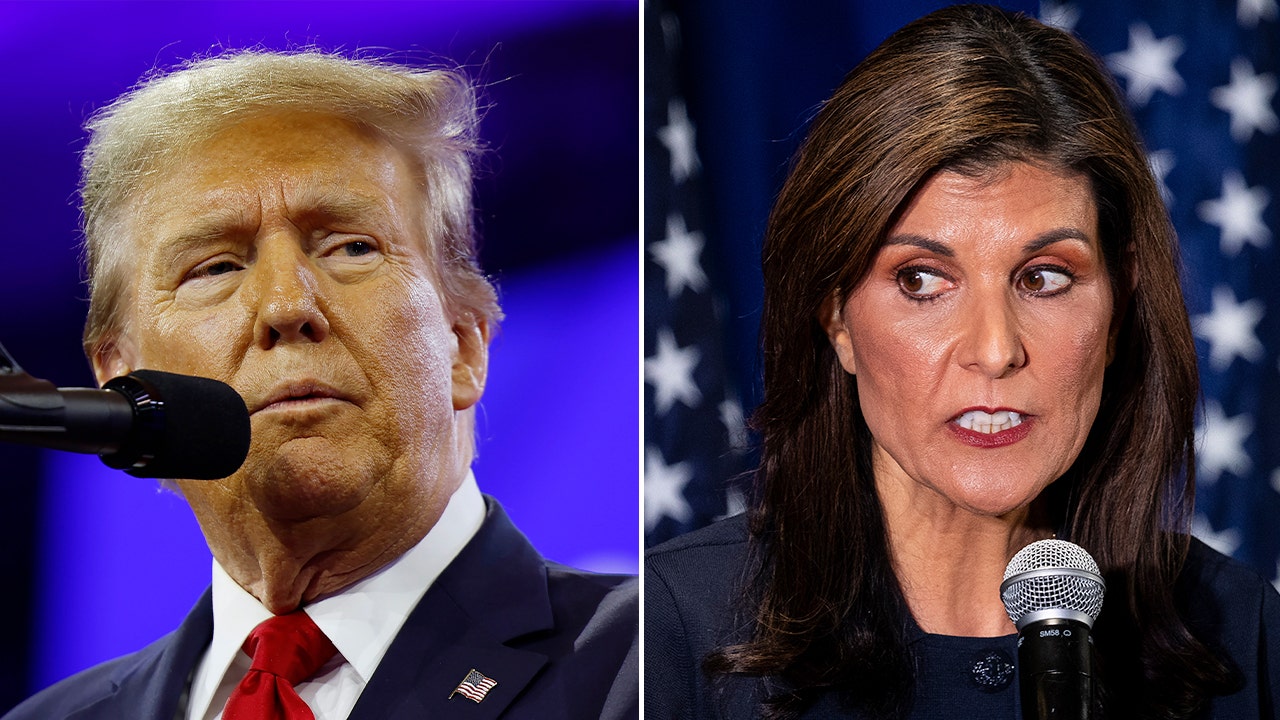Finance
The many faces of Kevin Morris, Hunter Biden’s financial patron

“Who was the real me? I can only repeat: I was a man of many faces.”
Those words by author Milan Kundera could well have been written for Kevin Morris, a critical figure in the unfolding Hunter Biden scandal.
Morris was largely unknown to most people until he emerged as the Democratic donor who reportedly paid the president’s son millions to handle his unpaid taxes and maintain his lavish lifestyle. The Hollywood lawyer and producer portrayed himself as a good Samaritan on a biblical scale — a good man who simply found a desperate stranger on the road and gave him more than $5 million.
His counsel, Bryan M. Sullivan, stated that “Hunter is not only a client of Kevin’s, he is his friend and there is no prohibition against helping a friend in need, despite the inability of these Republican chairmen and their allies to imagine such a thing.”
The statement captures the problem for Morris. It is increasingly hard to determine what Morris was at any given moment: Democratic donor, lawyer, friend. Indeed, that is precisely the problem that some of us have raised for months.
Lawyers are not supposed to personally pay the bills of their clients. Specifically, California Bar Rule 1.8.5(a) states that “[a] lawyer shall not directly or indirectly pay or agree to pay, guarantee, or represent that the lawyer or lawyer’s law firm will pay the personal or business expenses of a prospective or existing client.” They are required to maintain clear representational boundaries. This is also now the subject of a new bar complaint filed by a conservative legal group this week.
Friends have described Morris as a “rule-breaker” and admit that his relationship with Hunter raises eyebrows. “Certainly it’s not careful, but he’s a gunslinger,” one told the Los Angeles Times. “This is how he rolls.”
But the legal ethics rules are designed to avoid gunslinging generally and ambiguity specifically.
Hunter calls him both his lawyer and his “brother.” Lead counsel Abbe Lowell observed, “I have never in any of my representations of any other client — other than someone who is an immediate family member of one of my clients — known anyone who is like Kevin.”
When the relationship began, Morris was playing the role of a loyal Democratic donor.
He was introduced to Hunter at a 2019 political fundraiser by another producer and Democratic deep pocket, Lanette Phillips. Soon thereafter, Morris was giving Hunter copious amounts of money and legal advice. That would include reportedly paying off Hunter’s long-delinquent taxes before criminal charges were filed. It also included covering Hunter’s lavish lifestyle.
Morris may be most eager to avoid the label “democratic donor” because these payments could be viewed as an unreported campaign donation. Morris first appeared during Joe Biden’s campaign for president. Then, on Feb. 7, 2020, shortly after the inauguration, Morris flagged how the taxes represented a “considerable risk personally and politically.” He seems to have sought to resolve that political liability by paying off the taxes. He has insisted it is being treated as a loan.
Those payments would continue, and Morris insists that it was all standard “loan” stuff. Except he is not a bank, and Hunter was routinely called his “client.”
It is also important that these millions are treated as loans because, if they are actually gifts, they could create a new tax problem. Hunter would have to declare such “gifts,” and taxes would be owed on their value.
Few would view Hunter as a good risk for a loan, given his history of stiffing a wide array of businesses and associates. Indeed, he reportedly even struggled to pay for alleged high-end prostitutes. He was even accused of using a credit card connected to his father to pay off an alleged Russian call-girl. Even the art dealer who recently sold Hunter’s art reportedly testified that Hunter never reimbursed him for the costs of the shows.
Those art sales add an interesting twist to the mysterious role of Morris. Recently, art dealer Georges Bergès blew away White House claims that Hunter had been barred from knowing the names of purchasers under a comprehensive ethics system. He admitted that Hunter knew the identity of 70 percent of the purchasers.
It was not hard. Despite news reports of buyers flocking to buy the art, it now appears it was largely Morris who bought the art. Notably, however, Morris reportedly only paid Bergès’ 40 percent commission on the $875,000 purchases. It is not clear whether Morris applied the principal against the outstanding debt. That would be a clever way to treat the money as a loan, if it were used for that purpose. You simply have Hunter crank out dubious pieces of art and arrange for an ally to throw art shows in New York. You then have media allies write how buyers were “floored” by Hunter’s talent.
Finally, you pay the commission on the excessive prices for the art while writing off the value of the art as a type of in-kind payment of the loan. With some valued at close to half a million dollars, many mocked the fact that Hunter was getting more than some Pablo Picasso sales. Yet those inflated prices would be useful to count as direct or indirect payments for the loans.
We still do not know how these purchases or the loans were treated, and whether Morris was acting as a donor, friend or lawyer. Now, Morris is adding a new role to this pile of identities, reportedly supporting a new movie on Hunter Biden.
Call it “Mr. Biden Goes to Washington,” a rewrite of Frank Capra’s classic, only this time the corrupt establishment wins.
In the original movie, a young novice appointed to the U.S. Senate fights the corruption of Washington, where his senior senator has sold access and influence to James Taylor, a wealthy businessman. Taylor scoffs at the notion that the establishment can be challenged. After all, they control the media and what the public will read and hear. As Taylor assured the senior senator, “I’ll make public opinion out there within five hours! I’ve done it all my life…You leave public opinion to me.”
Morris is still fighting to shape public opinion, and, in Hollywood, movies make reality.
Morris “makes public opinion,” and the media can be expected, again, to assist in those efforts.
Many in Washington believe that Hunter’s stunts in holding a press conference defying his subpoena, and later crashing his own contempt hearing, were literally made-for-television moments. These scenes were captured on film and will no doubt be featured in the new film on his heroic struggle.
The question is the audience for the film. Clearly, in the Beltway, audiences are likely to be sobbing with emotion as Hunter fights against inquiries into influence peddling. They will cheer at Joe Biden’s moment channeling John Wayne, when he declared, “No one f**ks with a Biden.”
However, most audience members would not have felt the same thrill if, at the end of the original movie, the corrupt Sen. Joseph Paine and the wealthy Taylor had emerged as the victors, fighting off the do-gooders and “boy rangers” supporting Jimmy Stewart’s main character.
The question is also who would play Morris — or more accurately, how many would have to play this “man with many faces.”
Jonathan Turley is the J.B. and Maurice C. Shapiro Professor of Public Interest Law at the George Washington University Law School.
Copyright 2023 Nexstar Media Inc. All rights reserved. This material may not be published, broadcast, rewritten, or redistributed.

Finance
Oregon lawmakers spend $5.4 million to prep for oncoming campaign finance rules

Oregon lawmakers are spending more than $5.4 million to help elections officials revamp their system for reporting campaign finances and clear a massive backlog of languishing election complaints, in preparation for new rules set to shake up state politics.
The money, approved Friday morning, is a crucial bit of unfinished business left after lawmakers’ scramble earlier this year to pass a package that will limit the money Oregon political campaigns can accept beginning in 2027, among a host of other changes.
Oregon lawmakers approved new campaign finance rules earlier this year to curb the impact of money in swaying voters. Now, lawmakers plan to spend $5.4 million to upgrade the system used to track political spending and hire more staff to help investigate complaints. Voters line up at the Multnomah County Elections Division in Portland, in this Nov. 8, 2022 file photo.
Kristyna Wentz-Graff / OPB
That surprise proposal, House Bill 4024, was the product of hurried negotiations between business, labor and so-called good government groups. But it came together too late for elections officials to get a clear picture of what it would cost to put into place.
Secretary of State LaVonne Griffin-Valade instead brought a $5.4 million proposal forward this week, as lawmakers are meeting for routine interim committee hearings and considering dozens of “emergency” spending items. Similar or higher costs for the effort are likely in the next budget.
Griffin-Valade’s proposal includes expanding her office by 21 employees.
Many of those will be informational technology workers who will help completely revamp the state’s ORESTAR system for reporting and displaying campaign financial transactions. Oregon elections officials have pressed for years for funding to replace the two-decade-old system, which they say is unwieldy for users and so old that finding technical support is difficult. The office is now seizing on the new campaign finance rules – and a related requirement that it create a new online dashboard to help the public track political spending – to push forward with a replacement. A written proposal says the Secretary of State plans to “undertake a complete overhaul of ORESTAR prior to January 1, 2027… with a required go-live date of January 1, 2028.”
The office is also proposing adding two investigators who can look into elections complaints that have ramped up in recent years, along with a manager to oversee that work. Those would add to an existing staff of three investigators, one of which was approved in the recent legislative session.
There are more than 750 outstanding complaints before elections officials, some of them years old, and more coming in all the time.
“So far during the 2024 election cycle, SOS has received twice as many complaints as they had at this point in the 2022 election cycle and seven times more than the 2020 election cycle,” the Secretary of State’s Office said in a budget request.
Griffin-Valade says extra workers will be necessary to clear the backlog before the onset of new regulations that are bound to spur new complaints, and which require that officials handle complaints more quickly.
The surge in complaints isn’t unique to Oregon. But it has been a special concern to lawmakers like state Rep. David Gomberg, D-Otis, who urged his colleagues to approve the funding in a meeting of the Legislature’s Emergency Board on Friday morning.
“This isn’t something we can wait on,” Gomberg said.
Not everyone was convinced. A handful of Republican lawmakers voted against the package over concerns that the funding should have been approved alongside the campaign finance bill, and that the state was moving too hastily to replace its ORESTAR system.
“I don’t see any harm in waiting until the next legislative session,” said state Sen. Fred Girod, R-Silverton.
The proposal passed the Emergency Board despite those concerns.
Finance
PODCAST | Adapting to change: The future of factoring and supply chain finance

Estimated reading time: 5 minutes
Listen to this podcast on Spotify, Apple Podcasts, Podbean, Podtail, ListenNotes, TuneIn
The volatility of the geopolitical and macroeconomic environment in recent years has caused some problems in the trade, treasury, and payments industries.
However, industry actors have adapted and are working together to build resilience and make international trade even stronger.
To hear about developments in the factoring and supply chain finance world, Trade Finance Global (TFG) spoke with Çağatay Baydar, Chairman at FCI and Irina Tyan, Principal Banker, TFP at the European Bank for Reconstruction and Development (EBRD).
Challenges and growth in the factoring industry
The factoring industry has demonstrated impressive growth since the turn of the century despite facing significant challenges, particularly in emerging markets.
Baydar said, “The growth rate in 2023 was 3.3% globally in the volume of the world factoring and in 2022 it was 18%. Over the last 20 years, the average growth rate has been 8% which shows that factoring is becoming a mainstream financial product globally, which is very good indeed.”

The sector, which revolves around the purchase of receivables from businesses to provide them with immediate liquidity, has become an essential component of global trade finance, but it also faces challenges. One of the primary challenges is the bureaucratic and infrastructural limitations inherent in the current system.
Factoring, being an invoice-based product, requires a significant amount of paperwork and documentation, which can be cumbersome and traditionally relies on a paper-based system that only adds to the administrative burden for businesses.
In developed regions like Europe, factoring’s penetration rate – a measure of the amount of trade volume that uses factoring – is around 15%, reflecting a more mature understanding and use of this financial product. By contrast, in emerging markets, the penetration rate is significantly lower, with countries like Turkey and Georgia showing rates as low as 3%.
This discrepancy highlights the knowledge gap and infrastructural deficiencies in these regions. Businesses in these markets often lack the necessary awareness and understanding of factoring, which limits their ability to leverage this financial tool to its full potential.


However, factoring usage in some emerging markets is growing.
Tyan said, “We see the progress in the countries where we started five to seven years ago, like Georgia. We recently had a workshop in Jordan, where we also see a more adapted market, more ready to look into this type of product.”
Further collaboration and efforts to promote regulatory reforms and technological advancements may be what is needed to drive factoring growth in these underutilised regions.
Regulatory reforms and technological integration
Regulatory reforms are crucial for the sustained growth and development of the factoring industry, and legal clarity is particularly important in emerging markets, where the absence of a well-defined regulatory environment can pose significant barriers to factoring’s growth.
One of the key areas that require attention is the standardisation of data exchange formats.
Creating common data standards for supply chain transactions can facilitate smoother integration between different platforms and financial institutions, improving efficiency, reducing administrative burdens, and enhancing the overall effectiveness of the factoring process.


Another important aspect of regulatory reform is cybersecurity.
Tyan said, “As this product heavily relies on platforms, clear regulation on data security and cybersecurity is crucial to build trust among the participants.”
Ensuring the integrity and security of transactions protects sensitive financial information from potential cyber threats and is vital for the long-term sustainability and credibility of the industry.
Digitalising to draw clients and talent to factor
The factoring industry has been significantly transformed by the integration of digital technologies that have made the process faster, more efficient, and more accessible, especially for small and medium-sized enterprises (SMEs).
Traditionally, the paperwork involved in factoring, particularly for international transactions, slowed down the process and added to its complexity but digital platforms are allowing for quicker access to funds and improving the overall client experience.
Baydar said, “Today, with digitalisation and the platforms, we are making our business much faster, quicker, and more effective. This really helps SMEs to touch the money very soon, very quickly. This makes our clients happier than before because they can experience a very fast, very effective, seamless transaction.”
This shift not only speeds up transactions but also minimises the risk of errors and fraud associated with manual paperwork and can help attract more young professionals to the industry.
Baydar said, “Young people prefer to work with new technology and high-level startup businesses rather than traditional models.”
The new generation of workers is drawn to innovation and technologically advanced sectors. By embracing digital advancements, the factoring industry can position itself as a forward-thinking and dynamic field, appealing to young talent looking for exciting career opportunities. This influx of new talent is essential for sustaining the industry’s growth and development in the long term.
Organisations that fail to embrace digitalisation risk being left behind in a rapidly evolving market, meaning that investing in digital solutions is not just an option but a necessity for the future of the factoring industry.
Finance
Money Masters Leasing & Finance Q4 Results Live : profit falls by 31.86% YOY

Money Masters Leasing & Finance Q4 Results Live : Money Masters Leasing & Finance declared their Q4 results on 30 May, 2024. The topline decreased by 24.58% & the profit decreased by 31.86% YoY. As compared to the previous quarter the revenue grew by 327.97% and the profit increased by 259.02%.
The Selling, general & administrative expenses rose by 306.33% q-o-q & increased by 880.74% Y-o-Y.
The operating income was up by 629.34% q-o-q & decreased by 71.14% Y-o-Y.
The EPS is ₹0.17 for Q4 which decreased by 34.85% Y-o-Y.
Money Masters Leasing & Finance has delivered -11.99% return in the last 1 week, 74.73% return in last 6 months and 72.57% YTD return.
Currently the Money Masters Leasing & Finance has a market cap of ₹138.48 Cr and 52wk high/low of ₹189.95 & ₹25.74 respectively.
| Period | Q4 | Q3 | Q-o-Q Growth | Q4 | Y-o-Y Growth |
|---|---|---|---|---|---|
| Total Revenue | 1.1 | 0.26 | +327.97% | 1.46 | -24.58% |
| Selling/ General/ Admin Expenses Total | 0.62 | 0.15 | +306.33% | -0.08 | +880.74% |
| Depreciation/ Amortization | 0 | 0 | +0% | 0.01 | -61.72% |
| Total Operating Expense | 0.75 | 0.21 | +258.18% | 0.24 | +215.33% |
| Operating Income | 0.35 | 0.05 | +629.34% | 1.22 | -71.14% |
| Net Income Before Taxes | 0.35 | 0.05 | +625% | 0.45 | -20.87% |
| Net Income | 0.18 | 0.05 | +259.02% | 0.26 | -31.86% |
| Diluted Normalized EPS | 0.17 | 0.05 | +252.17% | 0.26 | -34.85% |
FAQs
Question : What is the Q4 profit/Loss as per company?
Ans : ₹0.18Cr
Question : What is Q4 revenue?
Ans : ₹1.1Cr
Stay updated on quarterly results with our results calendar
You are on Mint! India’s #1 news destination (Source: Press Gazette). To learn more about our business coverage and market insights Click Here!
Download The Mint News App to get Daily Market Updates & Live Business News.
More
Less
Published: 31 May 2024, 11:10 AM IST
-

 News1 week ago
News1 week agoRead Prosecutors’ Filing on Mar-a-Lago Evidence in Trump Documents Case
-

 Politics1 week ago
Politics1 week agoMichael Cohen swore he had nothing derogatory on Trump, his ex-lawyer says – another lie – as testimony ends
-

 News1 week ago
News1 week agoVince Fong wins special election to finish term of former House Speaker Kevin McCarthy
-

 News1 week ago
News1 week agoVideo: Midwest Storms Destroy Homes
-

 World1 week ago
World1 week ago€440k frozen in Italy over suspect scam by fake farmers
-

 News1 week ago
News1 week agoBuy-now, pay-later returns and disputes are about to get federal oversight
-

 News1 week ago
News1 week agoRead the I.C.J. Ruling on Israel’s Rafah Offensive
-

 News1 week ago
News1 week agoVideo: Protesters Take Over U.C.L.A. Building


















